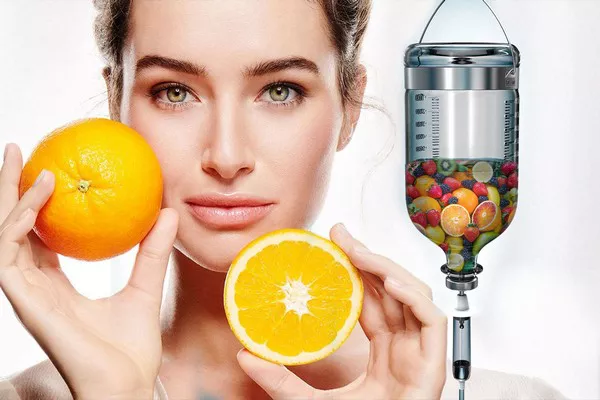Acne scars can often be a lasting reminder of previous skin troubles, impacting both confidence and self-esteem. In the quest for clearer, healthier skin, exploring the potential benefits of vitamins is a common strategy. In this article, we delve into the latest information to bring you the 17 best vitamins for acne scars in 2024, offering insights into their mechanisms, sources, and how they can contribute to achieving smoother, more radiant skin.
Understanding Acne Scars:
Before exploring the vitamins that can aid in addressing acne scars, it’s crucial to understand the nature of these scars. Acne scars typically result from inflammation, which can disrupt the normal collagen production in the skin. This disruption leads to either an excess or a deficiency of collagen, causing various types of scars, including ice pick, boxcar, and rolling scars. Vitamins play a vital role in the skin’s healing process, influencing collagen synthesis, reducing inflammation, and promoting overall skin health.
The 17 Best Vitamins for Acne Scars:
1. Vitamin A:
Mechanism: Encourages cell turnover, aiding in the regeneration of skin cells.
Sources: Retinoids, carrots, sweet potatoes, kale.
2. Vitamin C:
Mechanism: Boosts collagen production, reducing the appearance of scars.
Sources: Citrus fruits, strawberries, bell peppers.
3. Vitamin E:
Mechanism: Acts as an antioxidant, protecting the skin from oxidative stress.
Sources: Almonds, spinach, sunflower seeds.
4. Vitamin D:
Mechanism: Supports immune function, assisting in skin repair.
Sources: Fatty fish, fortified dairy products, sunlight.
5. Vitamin K:
Mechanism: Aids in blood clotting and may help reduce the appearance of dark spots.
Sources: Kale, broccoli, Brussels sprouts.
6. Vitamin B3 (Niacinamide):
Mechanism: Reduces inflammation and supports the skin’s barrier function.
Sources: Meat, fish, mushrooms.
7. Vitamin B5 (Pantothenic Acid):
Mechanism: Supports skin hydration and may assist in wound healing.
Sources: Avocado, sunflower seeds, chicken.
8. Vitamin B6:
Mechanism: Regulates sebum production, reducing the risk of acne.
Sources: Chickpeas, tuna, potatoes.
9. Vitamin B7 (Biotin):
Mechanism: Supports skin health and may aid in scar reduction.
Sources: Eggs, nuts, sweet potatoes.
10. Vitamin B9 (Folate):
Mechanism: Promotes cell division, crucial for skin repair.
Sources: Leafy greens, citrus fruits, legumes.
11. Vitamin B12:
Mechanism: Supports overall skin health and may aid in scar healing.
Sources: Meat, fish, dairy products.
12. Vitamin F (Omega-3 and Omega-6 Fatty Acids):
Mechanism: Reduces inflammation and supports skin structure.
Sources: Fatty fish, flaxseeds, walnuts.
13. Vitamin P (Bioflavonoids):
Mechanism: Enhances the antioxidant effects of vitamin C.
Sources: Citrus fruits, berries, green tea.
14. Vitamin Q (Coenzyme Q10):
Mechanism: Acts as an antioxidant, promoting skin repair.
Sources: Fish, whole grains, spinach.
15. Vitamin U (S-Methylmethionine):
Mechanism: Supports collagen production and skin healing.
Sources: Cabbage, Brussels sprouts, kale.
16. Vitamin PP (Niacin):
Mechanism: Improves skin barrier function and reduces inflammation.
Sources: Meat, mushrooms, whole grains.
17. Vitamin T (Tocotrienols):
Mechanism: Potent antioxidant properties, aiding in scar reduction.
Sources: Palm oil, rice bran, barley.
See Also: 10 Effective Natural Remedies for Deep Chicken Pox Scars
The Role of a Balanced Diet in Skin Health:
While the inclusion of these vitamins in your diet is essential, it’s equally crucial to adopt a holistic approach to skincare. A balanced diet rich in fruits, vegetables, whole grains, and lean proteins provides the necessary nutrients for overall skin health. Adequate hydration also plays a vital role in maintaining skin elasticity and promoting a youthful complexion.
Incorporating Vitamins Into Your Skincare Routine:
Beyond dietary measures, topical application of certain vitamins can complement your skincare routine. Many skincare products now contain vitamins such as A, C, and E in various forms, addressing specific concerns like collagen production, antioxidant protection, and scar reduction. However, consulting with a dermatologist can guide you in selecting products suitable for your skin type and concerns.
Conclusion:
In the ongoing pursuit of clear and radiant skin, incorporating a variety of vitamins into your diet may offer substantial benefits, potentially aiding in the reduction of acne scars. However, it’s crucial to maintain a balanced and varied diet, as no single vitamin can provide a complete solution. Before making significant dietary changes or considering supplements, consulting with a healthcare professional or dermatologist is advisable to ensure a tailored approach that aligns with individual health needs. As research evolves, staying informed about the latest insights into vitamins and their impact on acne scars remains a valuable aspect of skincare.


